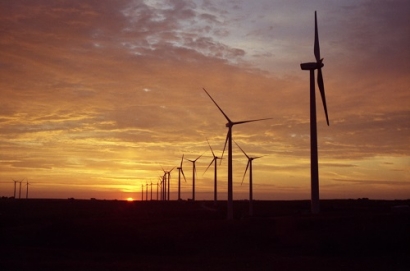
Thailand has set a renewable energy target of 30% of total energy consumption by 2036 in its Alternative Energy Development Plan (AEDP) 2015. However, according to a new report published by the International Renewable Energy Agency (IRENA) and the Ministry of Energy of Thailand, a stronger and more ambitious energy development plan could raise Thailand’s share of renewable energy in total final energy consumption to more than 37 percent by 2036.
Renewable Energy Outlook: Thailand finds that decreasing imports of fossil fuels and increasing the share of renewables in the energy mix to 37 percent would improve energy security and reduce the cost of Thailand's energy system by $1.2 billion annually by 2036. An additional $8 billion per year could be saved in avoided externalities from environmental and health-related costs of fossil fuels.
“Thailand, like other Southeast Asian nations, stands at an important crossroads in its energy future, as its growing economy is set to fuel energy demand growth of close to 80 percent over the next two decades,” said IRENA Director-General Adnan Z. Amin. “The switch to renewable energy represents more than just an energy transition in Thailand – it can support a complete economic transformation.”
Energy demand in Thailand is expected to increase by 78% by 2036, and gross domestic product (GDP) by 126%. Renewables will play an important role in meeting this demand. The report emphasizes the importance of developing a portfolio of different renewable energy sources in Thailand’s energy mix that can complement each other in resource availability.
The report suggests that by 2036 there should be a large amount of hydropower generating capacity, including 1,000 MW of pumped storage. This can be used as regulating power when needed, especially in the scenario that the share of variable energy sources, such as solar photovoltaic (PV) and onshore wind power, in the power system increase substantially.
It shows the country can expand its use of indigenous solar, wind and bioenergy resources across power generation, thermal uses and transportation.
The report offers five main recommendations for Thailand:
Renewable Energy Outlook: Thailand, is the first undertaking from IRENA that combines the methodologies of both REmap and Renewables Readiness Assessments (RRA). While REmap determines the potential for countries to ensure an affordable and sustainable energy future and RRA is a country-initiated process that identifies short- and medium-term actions for the rapid up-scaling of renewables.
Download the full report here.

